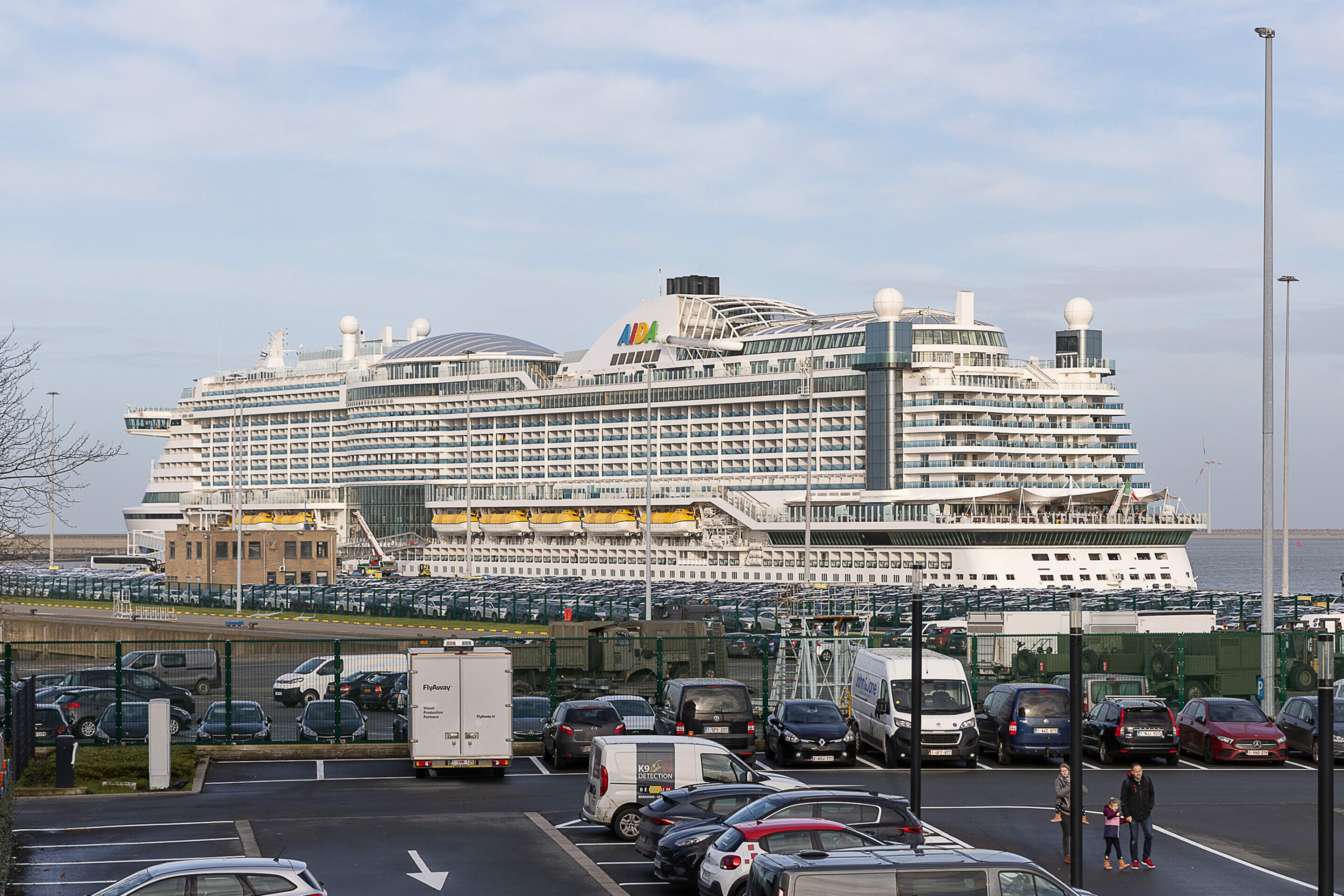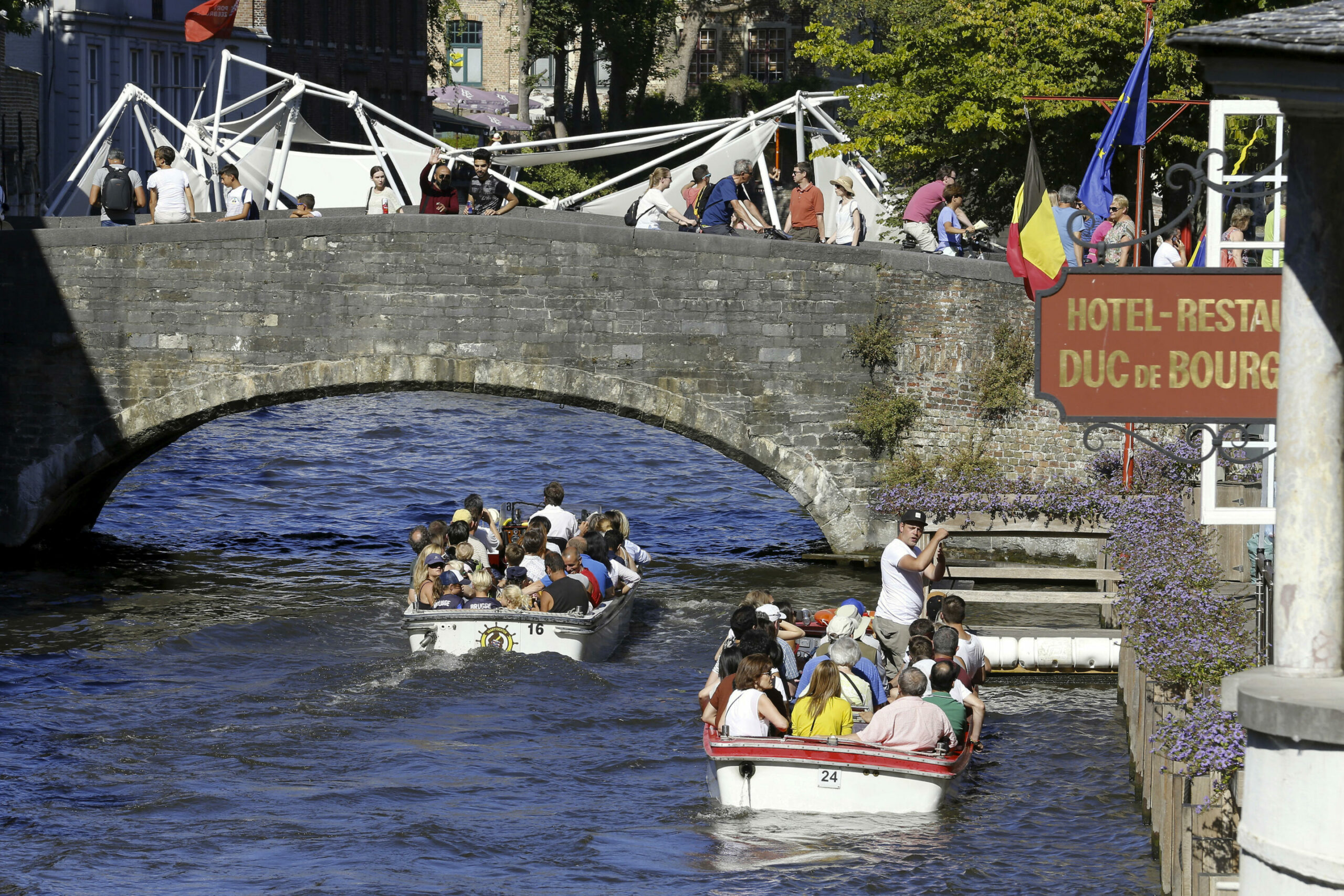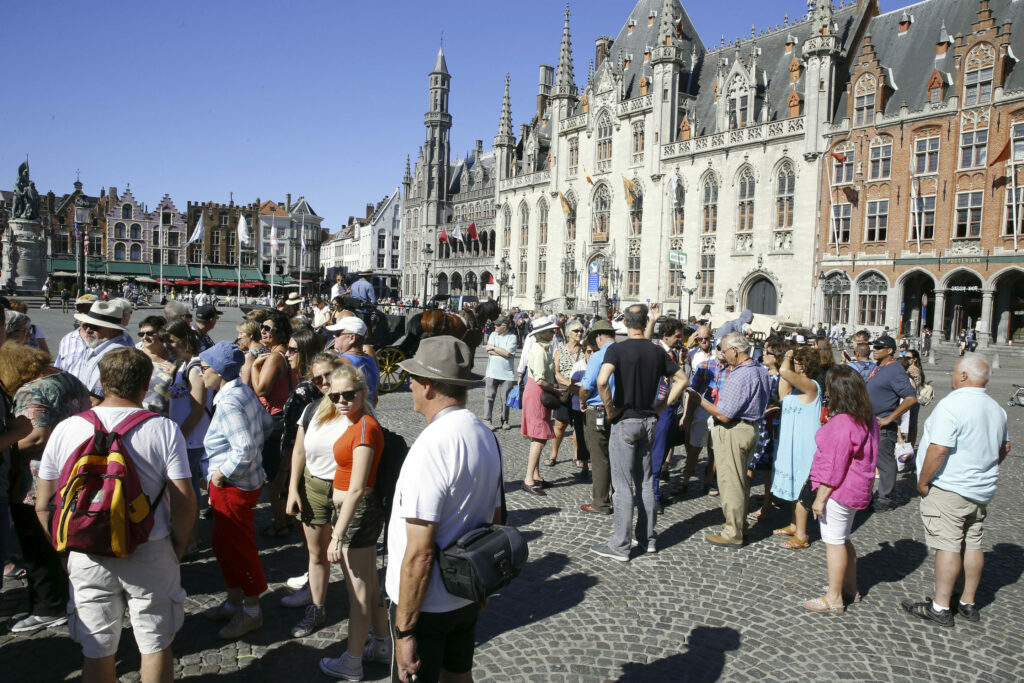Overtourism is most commonly associated with southern cities such as Barcelona or Venice. But Belgium's most popular cities are also aware of the problem and are taking measures to prevent Airbnb from disrupting their housing markets and ensure that visitors do not outnumber locals.
Some 7.3 million tourists visited Bruges last year. Taking into account multi-day visitors, 10.1 million visiting days were registered in the historic city centre – an average number of 27,500 per day, which works out at 138 tourists per 100 inhabitants.
"The people of Bruges have always been fairly positive about tourism but post-Covid we have seen attitudes turn. People have started indicating that there are just too many visitors," Dirk De fauw (CD&V), mayor of Bruges, told The Brussels Times.
Striking the balance
Bruges is 138 km² but most tourist activity takes place in the historic city centre – an area of barely 4.4 km². Recognised by UNESCO as a World Heritage Site, the main attractions converge in the "core tourist area", which centres around the first medieval ramparts.
"If we just let everyone do what they want, things will quickly go wrong," De fauw said. "We cannot and do not want to control access to the city, like Dubrovnik or Venice. We want to keep Bruges a city with activities beyond tourism."
The city authorities have therefore forbidden the construction of new hotels in the historic city centre. In conjunction with this, no more permits are being issued for holiday homes across the whole city. This also applies to those listed on platforms such as Airbnb – a move that aims to make housing affordable and preserve a healthy mix between residents and visitors.

A cruise ship in the port of Zeebrugge. Credit: Belga/James Arthur Gekiere
Bruges has also been a destination for cruise ships, which dock in the port of Zeebrugge. Now only two will be allowed each day, which should prevent thousands of tourists trooping into the city. "The people of Bruges are especially unhappy with cruise tourists. They come into the city in large groups who all go to the same places at the same time, disrupting the city's normal flow." These visitors usually stay only briefly in the city, creating dense crowds that congregate around the most popular sites.
It's an issue that many tourist destinations struggle with, says tourism expert Bart Neuts (KU Leuven). "There are two strategies to deal with this: Either concentrate the tourists or spread them out," he told The Brussels Times.
"Concentrating them in certain areas means that locals can no longer go there. Unfortunate as that may be, it does mean the other parts of the city can keep their local character," Neuts explained. "Spreading tourists out reduces the pressure on the central areas but it also means that tourists will increasingly go to outlying areas and prices will rise everywhere."
Travelling to tomorrow
Bruges is opting firmly for the first approach, De fauw stressed. "Residents have indicated that they feel it is too crowded in just one-fifth of the historic centre. So the city is not completely overwhelmed by tourists, they only come to certain places. Once you are 500 metres away, there are almost no tourists. That's how we want to keep it."
Last year, Visit Flanders surveyed over 7,000 residents of the five 'art' cities (Antwerp, Bruges, Ghent, Leuven and Mechelen) about the impact of tourism on their daily lives. They found that 64% of Bruges residents remain favourable about tourism in their city; just 15% were explicitly opposed to tourism in the city. About 20% of residents had neutral views of the industry.
Compared to previous surveys as well as other art cities, more Bruges residents indicated that tourism negatively impacts their comfort in certain parts of the city. A growing number of residents feel that tourists reduce the city's liveability and cause nuisance. There also was a rise in concern that growing tourism will see fewer people wanting to live in the city centre, that it causes traffic and parking problems, and that shopping streets are becoming less diverse.

A tourist boat tour in the centre of Bruges. Credit: Belga/Nicolas Maeterlinck
With its current 'Travel to Tomorrow' strategy, Visit Flanders is making efforts to ensure that destinations do not succumb to over-tourism. This isn't only the case in Bruges; other parts of the region are also rolling out preventative measures. The agency is focussing efforts on distributing visitors (both in time and space) by attracting different interest groups around certain themes, such as art and heritage, culinary Flanders, nature and cycling.
"We hope these themes will lead visitors to experiences that also take place outside the art cities," Stef Gits, spokesperson for Visit Flanders, told The Brussels Times. "We also focus on seasonal distribution to ensure that not all visitors come to Flanders during the busiest tourist months."
Importantly, the aim is no longer to attract as many tourists as possible. "We no longer only look at the interests of the visitor – as was previously the case – but we strive for a balance between the interests of visitors, residents and entrepreneurs with respect for the capacity and tolerance of the destination."

